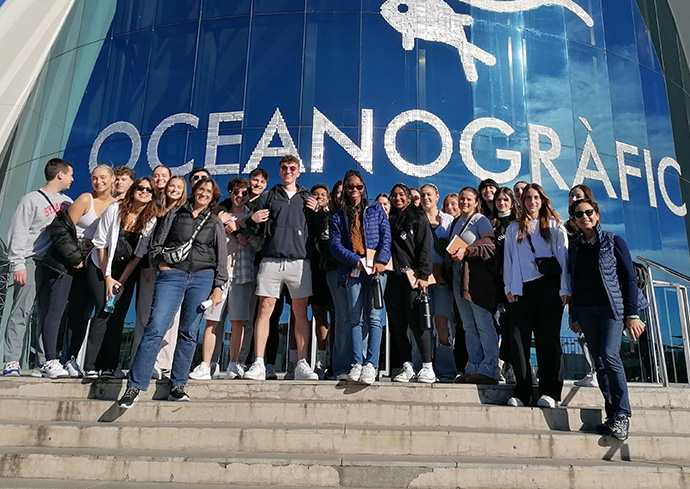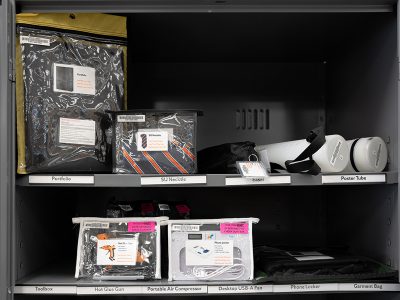Syracuse Abroad Students Make Headlines in Spain
Syracuse University students currently studying in Madrid, Spain made their way onto the local news earlier this month. During their first week in Spain, while participating in the Syracuse Madrid Marine Ecology Signature Seminar, students partook in a unique activity giving back to the ecosystem that caught the attention of the local media in Alicante. Torrevieja TV covered the story and noted the work of the Syracuse University students and their impact on the environment. Their volunteer work removing vegetation and plant life was a hands-on learning experience that demonstrated how different civilizations have “humanized” the Mediterranean environment.
A translation and description of the video clip above are provided below courtesy of Marine Ecology Seminar leader, Professor Monica Pérez-Bedmar.
The “Parque del Molino del Agua,” in the town of Torrevieja (Province of Alicante), in the Mediterranean coastline, was used by the military in the past century because of the presence of fresh water.
In the first half of the 20th century, the dunes that belonged to this area were well conserved and maintained their natural functions, such as protecting the coastline, creating habitat and acting as a recharge area for the coastal aquifer.
In the second half of the 20th century, exacerbated coastal development negatively impacted this dunar ecosystem, and many invasive species were introduced, taking over the habitat for the native species.
In the past 10 years, ANSE (The Association of Naturalists of Southeast Spain) started to remove exotic invasive species, such as the ice plant (carpobrotus edulis) and replanted native species, such as junipers, sabines and other Mediterranean bush species. Historical records were consulted to learn what native species were present in the past. Today, the dunes act as a ‘coastal hallway’ connecting the two nearby wetlands.
Last week, Syracuse students, during the Marine Ecology Seminar, volunteered with members of ANSE to remove half an acre of ice plants. During the next weeks, other volunteers will start planting native trees to restore the natural vegetation of the dune ecosystem.
The Marine Ecology Signature Seminar is a 10-day traveling course at the start of the semester that studies the marine ecosystems and the physiology of marine and coastal organisms along the coast of Spain. Integrated into their studies and coursework, students also earn their SNSI Diving Certification and scuba dive in surrounding bodies of water.



